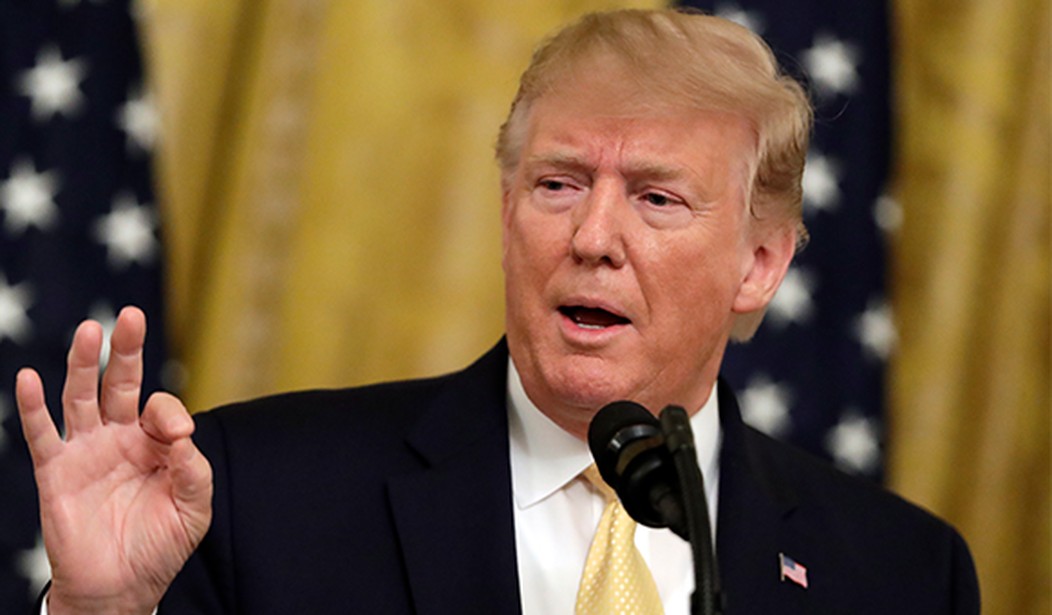UPDATE: United States Citizenship and Immigration Services Acting Director Ken Cuccinelli outlined the details of the new rule from the White House briefing room Monday morning, citing his own immigrant family from Italy.
The new rule does not affect asylum seekers, refugees, pregnant women, mortgage loans or students loans. Food stamps, cash assistance and other welfare will count as a negative on applications to become legal permanent residents. Likelihood of welfare use, current use or past use will only serve as one negative factor as applications are considered. A totality of other factors, like age and employment, will also be considered before a green card is issued.
The rule will go into affect on October 15, 2019 and applications for green cards will not consider the new requirements while evaluating eligibility until that date. Applications submitted before October 15 will not be subject to the additional scrutiny.
"This is an implementation of a law passed by Congress in 1996...on a bipartisan basis," Cuccinelli said. "Our rule generally prevents aliens who are likely to become a public charge from coming to the United States or remaining here and getting a green card."
"Through the public charge rule, President Trump's administration is re-enforcing the ideals of self-sufficiency and personal responsibility ensuring immigrants are able to support themselves and become successful here in America," he continued.
Recommended
***Original post***
United States Citizenship and Immigration Services Acting Director Ken Cuccinelli will announce from the White House Monday morning new enforcement measures that will make it more difficult for immigrants to obtain green cards if they are likely to sign up for welfare benefits.
"Public charge has been a part of our immigration law since the 1880s. Self-sufficiency has been a core tenet of the American dream. Self-reliance, industriousness, and perseverance laid the foundation of our nation and have defined generations of hardworking immigrants seeking opportunity in the United States ever since," a USCIS official released Monday morning. "President Trump is fulfilling his promise to the American people to fix our immigration system and is defining this important law that will protect American taxpayers and prevent abuse of government benefits."
Cuccinelli will argue the Trump administration is simply enforcing long standing and existing laws.
"Generations of Americans and hardworking legal immigrants have worked hard to meet their needs – they didn’t rely on the government," a background document says. "For more than a century, our process of admissibility into the country has emphasized the need for self-sufficiency."
The move is being made to cut down on fraud, abuse and to protect resources provided by the American taxpayer.
From the rule:
DHS is revising its interpretation of “public charge” to incorporate consideration of such benefits, and to better ensure that aliens subject to the public charge inadmissibility ground are self-sufficient, i.e., do not depend on public resources to meet their needs, butrather rely on their own capabilities, as well as the resources of family members, sponsors, and private organizations.10This rule redefines the term “public charge” to mean an alien who receives one or more designated public benefits for more than 12 months in the aggregate within any 36-month period (such that, for instance, receipt of two benefits in one month counts as two months). This rule defines theterm “public benefit” toinclude cash benefits for income maintenance, SNAP, most forms of Medicaid, Section 8 Housing Assistance under the Housing Choice Voucher (HCV) Program, Section 8 Project-Based Rental Assistance, and certain other forms of subsidized housing. DHS has tailored the rule to limit its effects in certain ways, such as for active duty military members and their families, and children in certain contexts.
Check back for more information after Cuccinelli's press conference, which will take place at 10 am ET.

























Join the conversation as a VIP Member